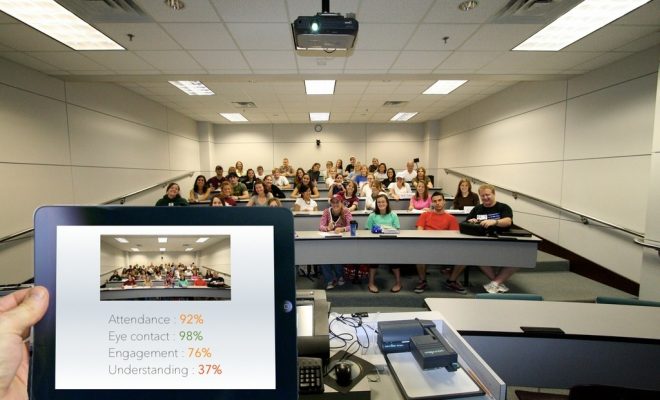Black Boys in Crisis: Racism in the Media and Schools

In this series, appropriately titled “Black Boys in Crisis,” I highlight the problems facing black boys in education today, as well as provide clear steps that will lead us out of the crisis.
Media portrayals of blacks as poor also carry the connotation that they are lazy degenerates and criminally deviant. As Leigh Donaldson points out, the representation of blacks in national stories of poverty were sometimes doubled to project the view that blacks are more closely associated with the poor than whites. In Beyond the Stereotypical Image of Young Men of Color, David J. Knight says: “The caricatures of critiques of these young men usually pivot around common tropes: The violent, drug-involved gangster; the angry, withdrawn teen; the crude, disrespectful provocateur; the unsmiling, unfeeling, untouchable thug.”
He goes on to note that the complex emotions, insights, and aesthetics of young black men are often rejected by the public, who want to cling to their narrow definitions. It is also important to note that, with few exceptions, media portrayals do not examine the reasons for the clothing and attitudes of young black men; reasons that Ta-Nehisi Coates so eloquently expresses.
Through disciplinary activities, school staff and administrators naturalize the perception of black boys among their classmates and surrounding neighborhoods, furthering the stereotype that they are threatening and violent criminals. They influence the perceptions of white staff and students who see African-American children being referred to police and suspended at disproportionate rates. Knight articulates the problem: “They often see [the black boy] as a physical threat. Americans’ perspective on this young man then becomes the control and policing of his body—rather than the acknowledgment and affirmation of his mind and soul.” This disciplinary approach naturalizes punitive actions toward black students, and their white peers internalize the notion that blacks are dangerous.
In the spring semester of 2012, a girl was hauled into the dean’s office at Chicago’s Hinsdale South High School for smoking marijuana. She admitted to wrongdoing and told the authorities that three other students had been smoking with her. Three of the four students received punishment. The girl and her friend, who were white, were suspended for five days. One boy, who was white, received no punishment. However, the fourth student, a black boy, was not only suspended for a full week; he was also arrested and pleaded guilty to being in possession of drug paraphernalia.
The issues at Hinsdale first came to light when a board member reviewing the annual suspension statistics realized that the discipline meted out for the same offense differed from case to case. Drilling down into the details revealed that black students tended to receive greater punishment for the same crime. A Tribune investigation revealed that the Hinsdale incident was not an isolated case. Black students frequently receive greater discipline for the same misdemeanor; moreover, they are more likely to be reported to the police than white students. In Hinsdale Township High School District 86, 8 percent of students are black. However, 21 percent of students reported to the police during the 2009–10 school year were black.
The black boy who was arrested in connection with marijuana use was bewildered by the unequal punishment he received. “I can’t say if it was because I was black or not,” he said. But he noted: “I had to go through way more than [the other three students] had to go through . . . It makes no sense to me.” Sadly, he now has a record of court supervision, which will follow him throughout his life and could cost him a stellar job or a college scholarship.
Those children who are suspended or expelled are the ones most likely to become incarcerated, and school disciplinary activity funnels unwanted children into the juvenile justice system. The frightening fact that a little schoolyard tussle can end with black children in police custody without their parents’ knowledge, and charged with assault, should be a wake-up call to those idly tending to their daily humdrum while turning a blind eye to those black children suffering under the character-defining yoke of an unequal education system. This problem has become so pervasive that US Attorney General Eric Holder was forced to make a statement against discrimination in schools. He said: “A routine school disciplinary infraction should land a student in the principal’s office, not in a police precinct.”
Here are the alarming statistics on black students and discipline:
- Regardless of age, black students are three times more likely than white students to be suspended.
- Black students make up about 16 percent of enrolled students, but more than a quarter of all students who are referred to the police.
- Students with disabilities make up about 12 percent of the student population, but they make up 75 percent of those restrained at schools. There’s a racial gap there, too: blacks are about 19 percent of the population with a disability but make up more than a third of students who are restrained at school through the use of a mechanical device or equipment designed to restrict their freedom of movement.
Unfortunately, the unequal discipline in schools and racist narratives in the media have combined to create a sense (often unconscious) that African-American males are inclined to criminal behavior. In a study published in the Journal of Personality and Social Psychology, 264 mostly white female undergraduates were asked to rate the innocence of people based purely on photographs and descriptions of their supposed crimes. Their responses showed that white Americans have an inherent bias against blacks. Participants consistently thought that the black boys depicted were older than their white or Latino counterparts, and considered them more culpable.
Black and brown students are more harshly punished for the same infractions that their white counterparts commit. Higher rates of misbehavior and socioeconomic disparity do not account for the gap in punishments, as African-American students are nearly four times as likely as white students to be suspended or expelled. This is a proportion equal to 46 percent of black students removed from school for disciplinary reasons, though, black students only account for 18 percent of total student enrollment.
On a national level, the number of children suspended or expelled from schools who find their way to the juvenile justice system is astounding. Students receiving just one such disciplinary infraction were nearly three times more likely to find themselves standing before a judge as a direct result of misbehavior in school. Despite the growing number of children jailed due to the “pipeline” effect, the number of those students facing juvenile justice who did not receive disciplinary action which would remove them from classrooms was 2.4 percent.
As minority children are increasingly ushered out of classrooms, they are increasingly received into juvenile court systems and prisons. David Night offers this insight: “This perceptive, emotional depth . . . is a strength that schools only need to seek out and acknowledge in young men of color. It’s a simple but radical change, and it unearths sorely needed counter-narratives that help disentangle what is true and good in these young men from the denigrating stereotypes about them.”
How would you feel if you were a black boy and broke a school rule along with your white classmates, but you were the only one who was punished? Unfortunately, it happens every day in America, and we do nothing to stop it. No wonder black boys have a general distrust of school and law enforcement authorities. Can you blame them?





